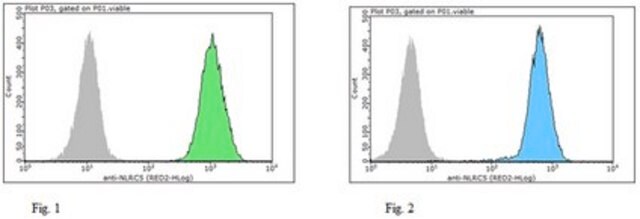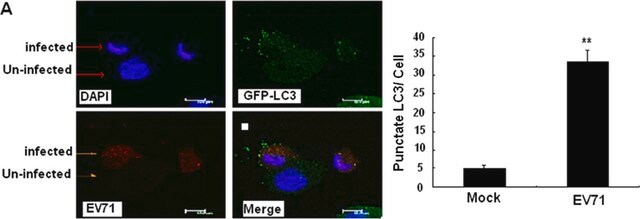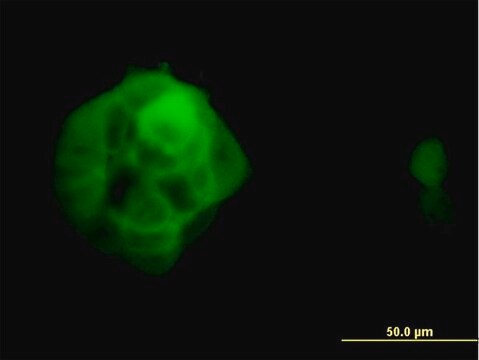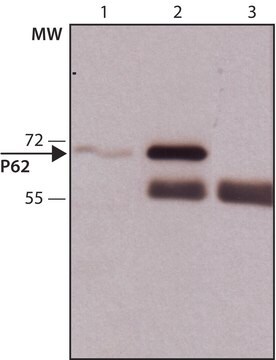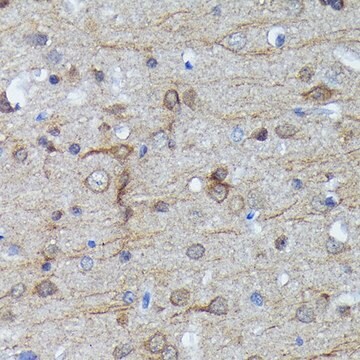MABN763
Anti-Ubiquilin 2 Antibody, clone 6H9
clone 6H9, from mouse
Sinonimo/i:
Ubiquilin-2, Chap1, DSK2 homolog, Protein linking IAP with cytoskeleton 2, PLIC-2, hPLIC-2, Ubiquitin-like product Chap1/Dsk2
About This Item
Prodotti consigliati
Origine biologica
mouse
Livello qualitativo
Forma dell’anticorpo
purified immunoglobulin
Tipo di anticorpo
primary antibodies
Clone
6H9, monoclonal
Reattività contro le specie
human, mouse
tecniche
immunocytochemistry: suitable
western blot: suitable
Isotipo
IgG1κ
N° accesso NCBI
N° accesso UniProt
Condizioni di spedizione
wet ice
modifica post-traduzionali bersaglio
unmodified
Informazioni sul gene
human ... UBQLN2(29978)
Descrizione generale
Immunogeno
Applicazioni
Neuroscience
Developmental Signaling
Immunocytochemistry Analysis: A representative lot detected Ubiquilin 2 in HeLa cells.
Qualità
Western Blotting Analysis: 1.0 µg/mL of this antibody detected Ubiquilin 2 in 10 µg of U-251 cell lysate.
Descrizione del bersaglio
Stato fisico
Stoccaggio e stabilità
Altre note
Esclusione di responsabilità
Non trovi il prodotto giusto?
Prova il nostro Motore di ricerca dei prodotti.
Codice della classe di stoccaggio
10 - Combustible liquids
Classe di pericolosità dell'acqua (WGK)
WGK 2
Certificati d'analisi (COA)
Cerca il Certificati d'analisi (COA) digitando il numero di lotto/batch corrispondente. I numeri di lotto o di batch sono stampati sull'etichetta dei prodotti dopo la parola ‘Lotto’ o ‘Batch’.
Possiedi già questo prodotto?
I documenti relativi ai prodotti acquistati recentemente sono disponibili nell’Archivio dei documenti.
Il team dei nostri ricercatori vanta grande esperienza in tutte le aree della ricerca quali Life Science, scienza dei materiali, sintesi chimica, cromatografia, discipline analitiche, ecc..
Contatta l'Assistenza Tecnica.